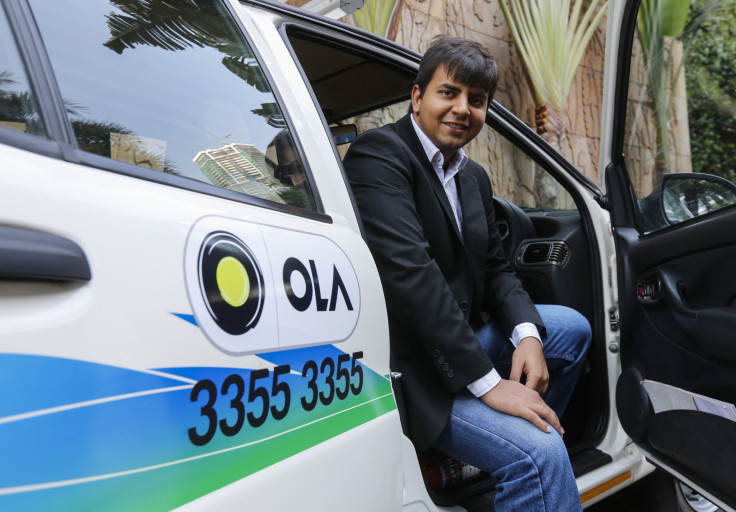Uber, Ola Prices May Be Regulated By Transport Authorities In India's Technology Hub Bangalore

Correction, Thursday, 12:30 a.m. EDT: A previous version of this article said there are currently 7,500 users across all cab-hailing service providers in India during peak time. In actuality, Ola Cabs says it currently handles 7,500 users a minute in India during peak time.
BANGALORE, India -- Regulators in India's southern state of Karnataka, home to the country's technology hub of Bangalore, aim to regulate the fares charged by ride-hailing service providers such as Uber Technologies and local competitor Ola Cabs, according to a local media report Wednesday.
Transport authorities in the state see these fares -- which include peak-time surcharges that Uber calls surge pricing -- as "arbitrary," Bangalore Mirror reported, citing Ramegowda, Karnataka's commissioner for transport and road safety.
India's federal government recently released new guidelines that for the first time recognized the ride-hailing service providers as a marketplace that connects commuters with cabs. Both Uber and Ola welcomed the guidelines and said they were willing to work with India's many federal states on implementing them locally.
"Preparations are underway to issue an order monitoring app-based taxi aggregators," requiring the companies to register with the local transport authorities "as per the guidelines fixed by the central government," the transport commissioner told Bangalore Mirror.
The ride-hailing service companies will, however, be barred from charging fares other than those set by the local transport authorities, he added.
One of the main points of contention between the new-age service providers and government authorities in India -- as in many other parts of the world -- has been about the very nature of the business, in that they are not conventional taxi services. The cab-hailing service providers see themselves as a market-driven exchange where prices get decided on the basis of demand and supply.
Transport authorities in places like New York or Singapore have moved to encourage that model, but with some riders, Jaspal Singh, co-founder of Valoriser Consultants, a New Delhi-based independent transport sector consultancy, told International Business Times in a phone interview on Wednesday.
"These are not arbitrary prices, but a dynamic pricing mechanism that is an international practice," Singh said. "New York allows surge pricing, but not during emergencies -- like a snow storm -- and Singapore only regulates the quality of cab services," and not the pricing or the number of cabs on the road, he said.
"It will take some time for Indian authorities also to adopt some of these practices," he added. Conventional radio taxis, or even India's auto-rickshaws are allowed to charge night-time rates that are higher than regular rates as an incentive for them to operate during late hours.
"Ola has observed that during certain times of the day, when more traffic is on road, routine drivers tend to log out of the system to suit their convenience as there is no incentive for them to put in extra effort," the Bangalore-based ride-hailing company, India's biggest by far, says on its website. Similarly, when demand suddenly increases, not enough drivers might be available on the road, inconveniencing some customers, Ola says.
"Ola has observed that the drivers are very sensitive to a little extra earnings for their extra effort to stay logged in to our system."
Transport consultant Singh adds that such practices can be regulated, but in a manner that benefits both the users of the cab-hailing apps -- comprising the millions of Indian commuters who are beginning to rely on these services -- and the companies.
Five-year-old Ola has served over 150 million cumulative bookings on its platform to date, and sees over 1 million daily booking requests, the company said in a press release Monday. Ola Cabs says it currently handles 7,500 users a minute in India during peak time and expects to be able to handle 3 million booking requests a day by April 2016.
Uber, which sees India as one of its biggest and fastest-growing markets outside the U.S., projects it will reach a million requests a day by 2016.
© Copyright IBTimes 2024. All rights reserved.





















